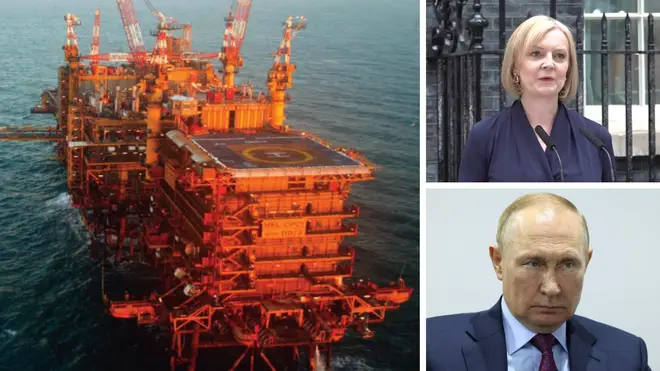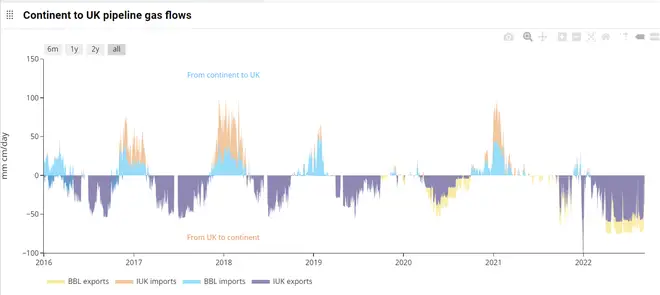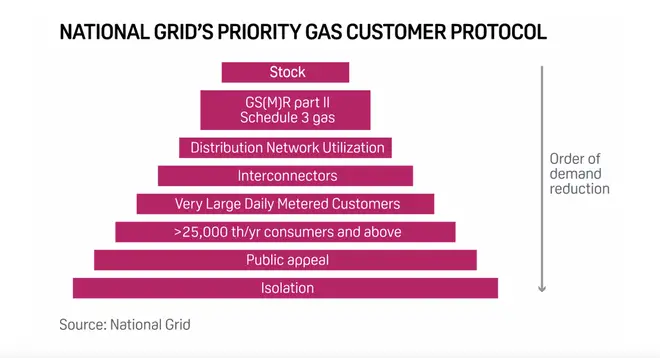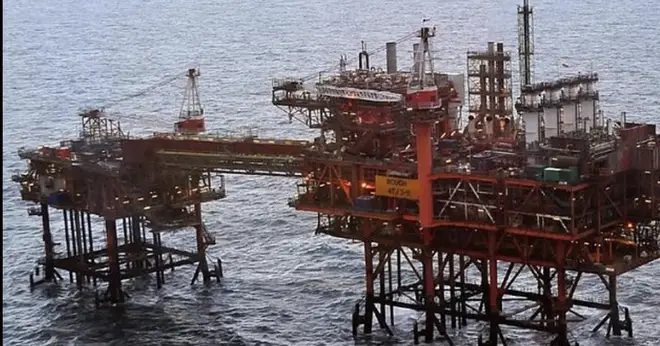
Nick Abbot 10pm - 1am
8 September 2022, 06:00 | Updated: 8 September 2022, 09:22

Britain is pumping unprecedented volumes of gas to Europe despite fears of extreme shortages this winter because of the UK's chronic lack of storage space.
Today Prime Minister Liz Truss will announce her much-heralded plan on how to help the millions of struggling households and businesses facing the biggest energy price hikes in history.
Despite the worldwide gas crisis since the Russian invasion of Ukraine, Britain has healthy quantities of gas supplies, including liquified natural gas imports, but low storage capacity.
Currently around 15 per cent of the Continent's gas supply originated in the UK.
Liz Truss is set to announce her plan for tackling energy bills at 11.15am – you can follow the latest on LBC on Global Player
National Grid bosses acknowledge there is a plan if Britain is hit by extreme shortages which include cutting supplies to big industrial users, shutting off the pipelines to Europe which exploit 75m cubic metres of gas a day to Europe, and potentially even shutting off individual homes or offices.
In recent months as Russia strangles supplies after the West's reaction to the Ukraine invasion, European Union countries anticipating plunging winter temperatures have raced to fill their storage sites.
But Britain has been left massively exposed to movements in the unregulated energy market this winter due to a shortage of storage facilities - especially if Putin further acts against Europe's gas supplies.

Andrew Anderson-Shepherd, Senior Risk Manager at British Independent Utilities, said: "In these uncertain times there is a lot going on in the markets and it makes sense for people and businesses to think about how they get their energy."
Gas prices have eased from near record highs but are still 12 times higher than at the start of 2021, before the energy crisis began.
Higher fuel stockpiles, strong inflows of liquefied natural gas and mild weather - which is expected through the next month - have helped to keep prices in check, following August records.
Read more: Brit aid worker who died after being captured in Ukraine 'suffered unspeakable torture'
But the unregulated market remains volatile as traders worry over how Europe will replace lost supplies from Russia when it gets cold and demand rises.
Last week Russia said its key Nord Stream 1 pipeline to Europe would not reopen as planned. Initially Moscow claimed there was a "technical problem" before finally saying it will not be back in use until sanctions are lifted.

Norway has replaced Russia as Europe’s top gas suppler and is currently earning more money than any company from the country ever has.
Executives at the country's state owned energy company Equinor refute suggestions they are profiteering on the crisis saying they're proud to help Europe.
At a conference last week Equinor CEO Anders Opedal admitted they have an unusually large amount of money but "will invest in good, profitable projects within renewable energy and oil and gas."
Read more: Ex England footballer sentenced over plot to smuggle 24kgs of cannabis
Oyvind Eriksen, chief executive of Norway's Aker energy group, admitted: "The energy crisis and higher energy prices have been an eye opener for us all."
British Gas owner, Centrica, has signed a major supply deal with Equinor which it hopes will deliver enough gas for the next three years to heat 4.5million extra homes.

On Friday EU leaders will hold an emergency meeting to finalise plans for a price cap on Russian gas supplies to the 14 member states still taking Moscow's feed amid fears of widespread rolling blackouts and shuttered factories across the continent.
Last week Centrica won permission to reopen the Rough facility in the North Sea off the East Yorkshire coast. The site is Britain's biggest natural gas storage facility, which closed in 2017.
But the company remains in talks with ministers about long-term financial support for the site and has not set a date for re-opening.
Tory MP John Redwood said: "I think we need more gas storage but my number one urging for many years has been getting more of our own gas out of the North Sea, and onshore where local communities go along with it.
"But the UK position is an awful lot stronger than the German or Italian position, which were much more dependent on Russian gas."
A government spokesman has said they are confident that Britain will not run out of supply this winter.